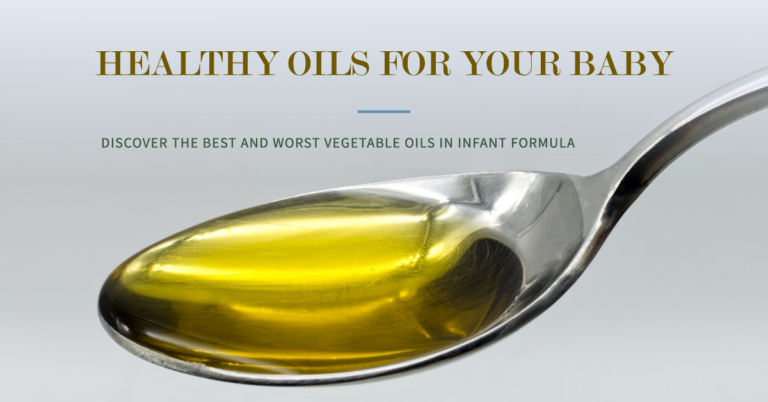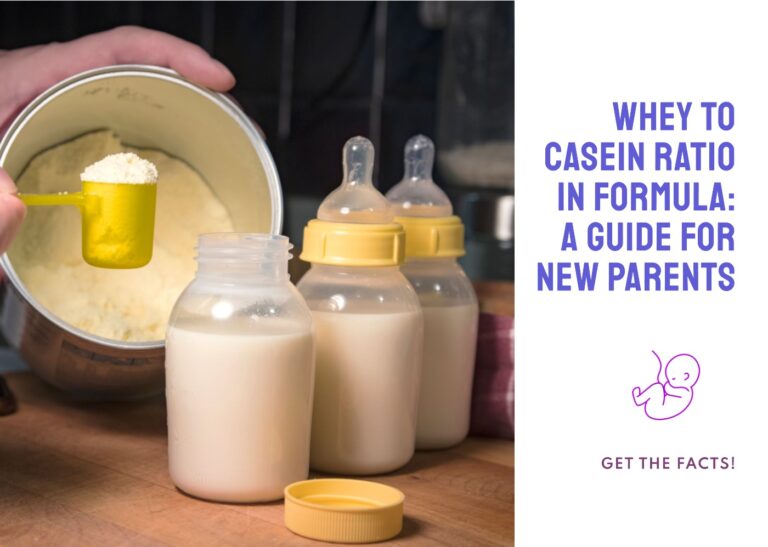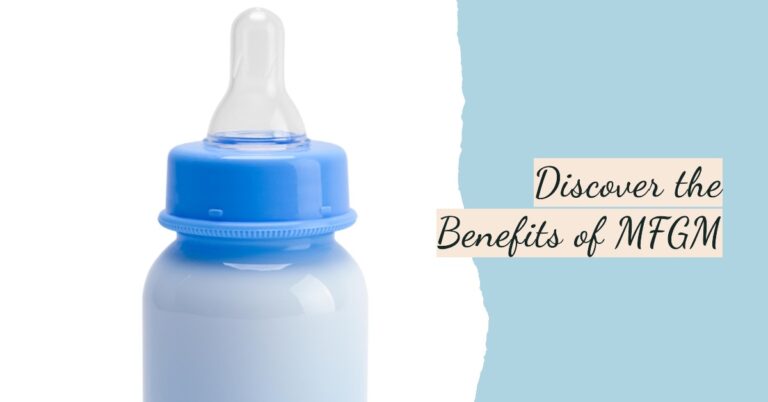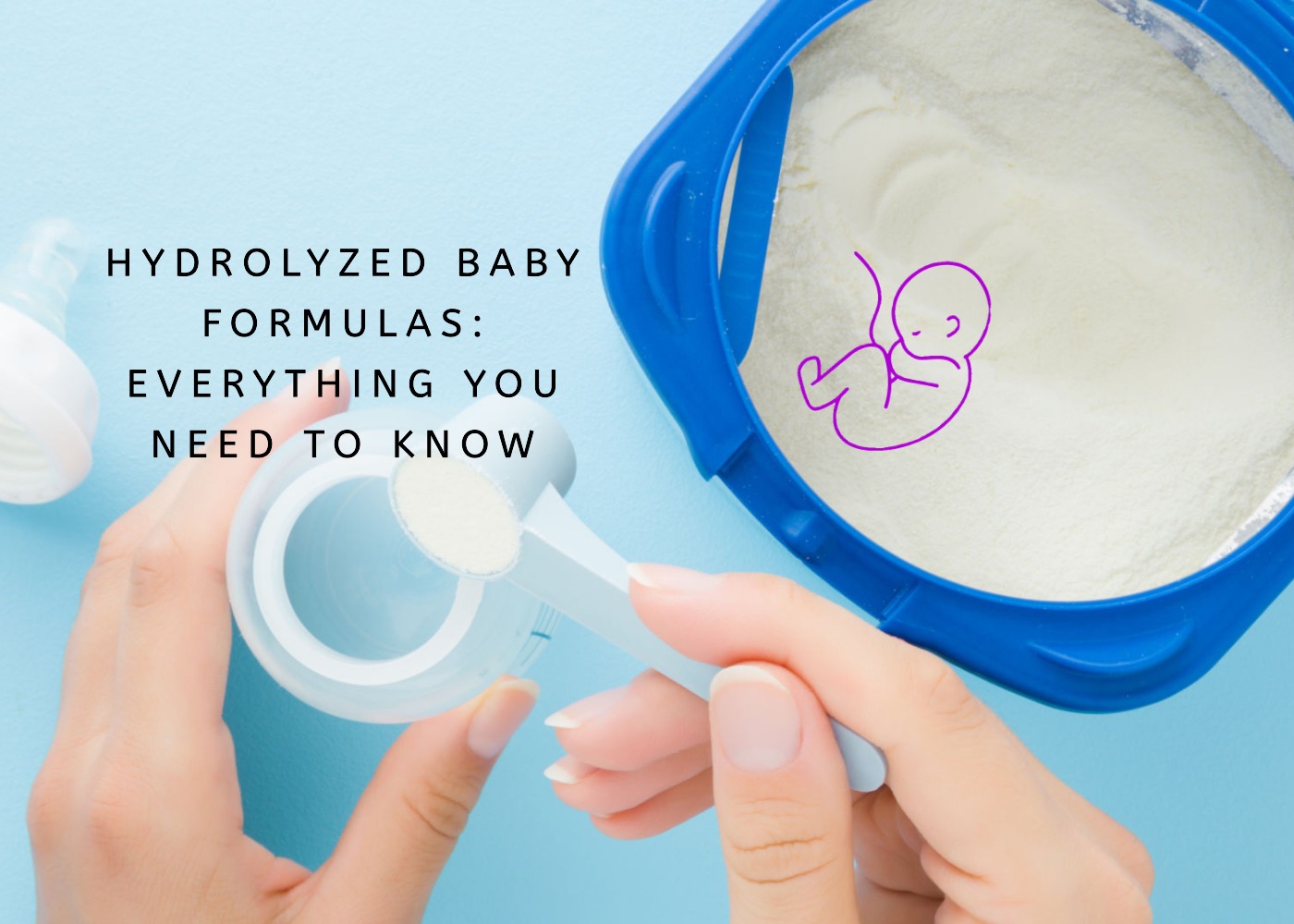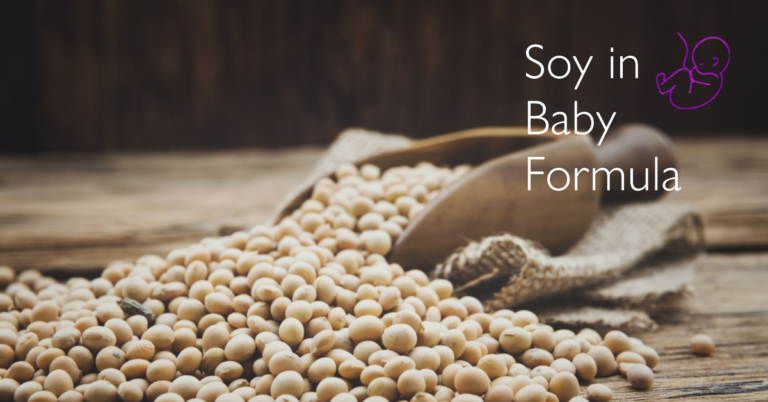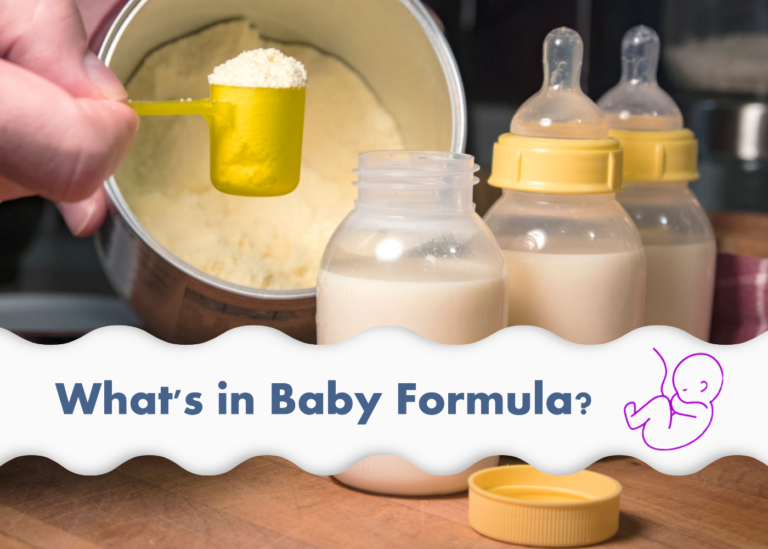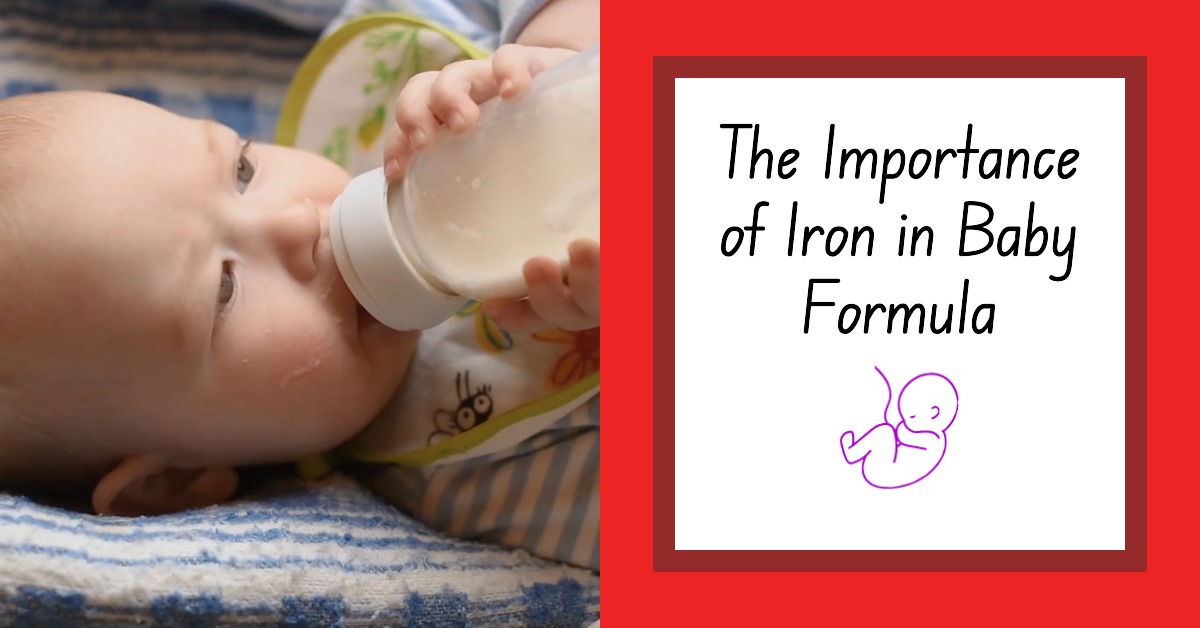
Key Takeaways
1️⃣ Role of Iron: Iron is vital for your baby’s health, contributing to their growth, brain development, and immune function. Iron deficiency can lead to various issues, including delayed growth, cognitive impairments, and decreased immune function.
2️⃣ Iron in Formulas: Most infant formulas are iron-fortified to meet babies’ iron requirements. Though breast milk contains iron, its amount may not meet the daily recommended intake for infants, hence the iron fortification in baby formulas.
3️⃣ Iron Recommendations: Until 6 months, your baby will utilize the iron reserves from pregnancy, and any formula will cover their needs. Starting at 6 months, as you introduce solid foods, the iron in these foods will meet your baby’s requirements. If you can’t start solids at this age, a formula with higher iron content is recommended.
4️⃣ Iron-Fortified Formula: Iron-fortified formulas are safe and healthy for your baby. However, they’re unnecessary for all babies – only those who need more iron will benefit from them. Always consult with your pediatrician.
5️⃣ Iron Content in Different Formulas: US formulas generally have higher iron content due to FDA requirements. Despite the differences, all formulas have the necessary amounts for babies.
6️⃣ FAQs Answered: Iron in baby formula does not cause gas, colic, or any other digestive issues. It is an essential mineral, crucial for your baby’s overall health.
This post aims to help new parents resolve their questions about iron and infant formula so that they can make informed decisions about their child’s nutrition.
Let’s get after it!
Our Short Answer and Experience
Breast milk is the best source of nutrition, but when it isn’t an option, infant formula serves as an appropriate and comprehensive substitute. The issue of iron is quite common, and many parents have valid questions about iron in baby formula.
Here’s our contribution, in brief:
1. Until 6 months, your baby will utilize the iron reserves from pregnancy, so any formula designed for this age range will be more than sufficient to cover their iron needs. You should focus more on other key factors in the formula you choose, like the whey-to-casein ratio, DHA and ARA, maltodextrin, palm oil, etc.
2. Starting at 6 months, it’s time to introduce solid foods through purees or Baby Led Weaning (which we recommend). At this point, the iron in these foods will meet your baby’s requirements. If you can’t start your baby on solids at 6 months, getting a formula with higher iron content, like an iron-fortified formula, or a formula designed for babies 6+ months, such as European stage 2 formulas, is recommended.
The Role of Iron in Babies’ Health
Iron plays a crucial role in the health of babies, supporting their growth, brain development, and immune system function.
Function or iron for babies (growth, brain development, immune system)
This essential mineral supports the overall growth of your little one. But its influence extends well beyond just physical development.
Iron fuels brain maturation – it triggers the process through which neurons connect and form complex circuitry, underlying cognitive skills such as memory and attention.
Equally vital is iron’s impact on the immune system; it catalyzes important biochemical reactions that allow white blood cells to stave off infections effectively.
Consequences of iron deficiency in babies
Delayed Growth and Development
Cognitive Impairments
Behavioral Issues
Decreased Immune Function
Anemia
Impaired Motor Skills
Poor Appetite and Feeding Difficulties
Restless Legs Syndrome
Heart Problems
Delayed Language Development
Iron supplementation: Is it necessary?
Supplementing your baby with iron is unnecessary unless your pediatrician tells you to do it.
Healthy-term babies usually have enough stored iron at birth to fuel their initial growth for several months.
Up to five-six months of age approximately, your little one can get sufficient iron from breast milk. However, as they grow older, their iron needs increase, and additional sources become necessary.
Globally-accepted guidelines suggest not using preventive routine supplementation for such healthy infants, proving it’s not universally necessary.
Instead of indiscriminate use of supplements, introducing diverse foods rich in iron around six months of age is encouraged alongside a continuation of breastfeeding or formula feeding.
We recommend you read our guide on introducing solids, where we explain everything about starting solid foods with your baby.
Why Does Baby Formula Have Iron?
Baby formulas are often iron-fortified. This means that companies add iron to their formulas to meet the iron requirements of babies.
You might wonder why breast milk doesn’t provide enough iron for babies.
While breast milk does contain some iron, it may not meet the recommended daily intake for infants. This is because the iron in breast milk is well-absorbed by the baby’s body, resulting in efficient utilization without needing high levels of this mineral.
How Much Iron Is Recommended For Babies?
The chart below shows the amount of iron in milligrams that is recommended for children in the different age groups.
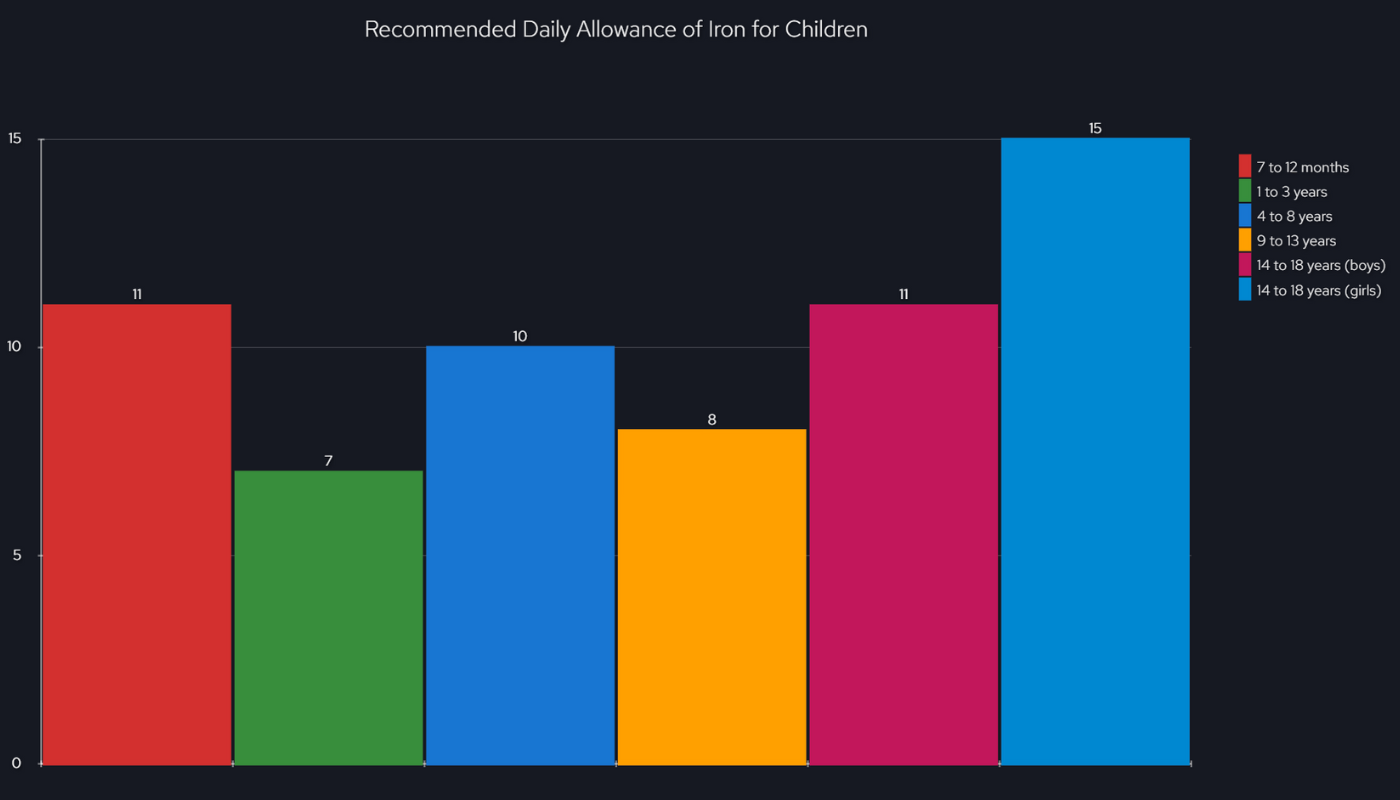
As you can see, the amount of iron needed from 7 to 12 months is very high in relation to the baby’s age.
This is why introducing iron-rich solid foods at 6 months is highly beneficial.
Check our Baby Led Weaning Guide for tips and tricks on how to do so.
Iron-Fortified Formula: Is It Necessary?
Any formula in developed countries today will have the iron needed for your baby unless it is a special formula.
Iron-fortified formulas have higher amounts of iron for those babies who need it and are unnecessary for everyone.
That said, if you choose an iron-fortified formula for your baby, even if your pediatrician does not recommend it, it will be perfectly safe and healthy.
There are many other ingredients to look for on the label besides iron.
Iron in Breastmilk vs Iron in Formulas
Breastmilk averages 0.4-0.5 mg per 100 calories, while formula has around 1.2 mg.
This is because the iron in breast milk is very easily absorbed, thanks to better bioavailability. The iron in breast milk is bound to proteins such as lactoferrin, which are easily recognized and utilized by the baby’s digestive system.
Breast milk also contains several factors that aid iron absorption:
Vitamin C: This vitamin, also present in breast milk, enhances iron absorption in the digestive tract.
Human Milk Oligosaccharides (HMOs): These complex carbohydrates in breast milk also support iron absorption. They may do this by promoting a healthy gut microbiome, which in turn helps to facilitate iron absorption.
Lower Calcium: While calcium is an essential nutrient, it can inhibit iron absorption when consumed in large quantities simultaneously with iron. Breast milk has an optimal balance of calcium and iron, which helps ensure that both nutrients are effectively absorbed.
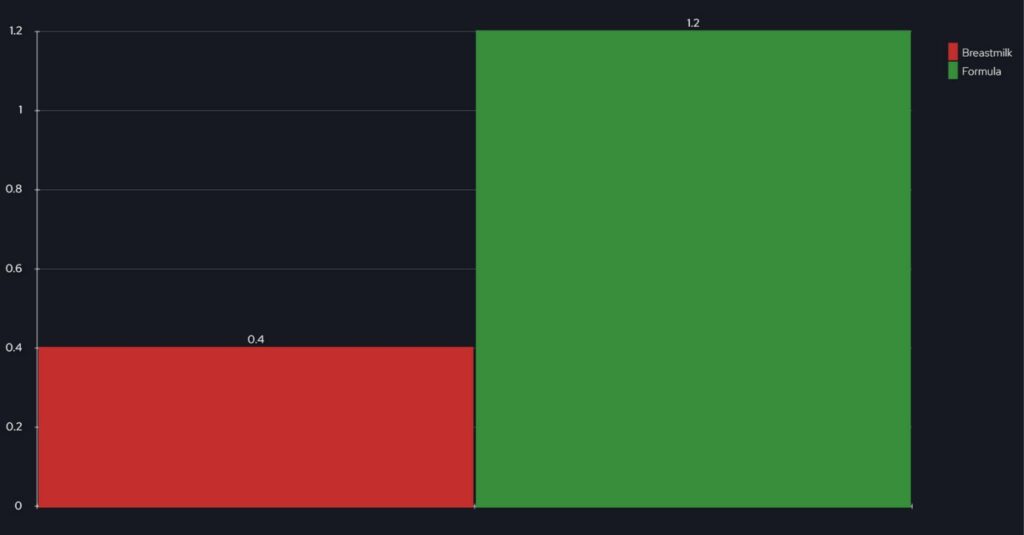
Iron: US vs European Formulas
US formulas usually have higher iron content because the FDA requirements are higher than those in Europe for iron.
Despite these differences, all of them have the necessary amounts for babies.
| Baby Formula | Iron Amount (mg per 100 calories) |
|---|---|
| Similac 360 total care | 1.8 |
| Enfamil NeuroPro | 1.8 |
| Kendamil Organic Stage 1 | 1.06 |
| Bobbie Formula | 1.2 |
| Holle Stage 1 | 0.82 |
FAQs
Does iron in baby formula cause gas?
Iron in baby formula does not typically lead to gas or digestive issues in infants.
New parents should be aware that any concerns regarding discomfort or colic associated with iron-fortified formulas are typically unfounded.
Iron is an essential mineral for babies, crucial to their growth, brain development, and immune system support.
Can iron-fortified formula cause colic?
Iron-fortified formula does not cause colic in infants. No evidence supports a correlation between the iron content in formula and gastrointestinal distress or colic symptoms.
Infants fed iron-fortified formulas do not experience differences in stools, gas, or spitting up compared to those on non-iron-fortified formulas.
So, there’s no need for parents to worry that giving their baby iron-fortified formula will contribute to colic or other digestive issues.
We’re Maria and Alberto, a married couple and educators who are nutrition enthusiasts. Even before we had kids, we were already crazy about nutrition.
We’d read scientific articles, watch videos from nutritionists, and spend hours listening to nutrition podcasts.
Today, we continue doing this, but in a different way, as we’ve learned to sift through the noise and trends. Nutrition, like any other field of knowledge, the more you read and learn, the more you develop a comprehensive understanding of reality, and that’s what has happened to us.
Before having our first child, we focused on learning everything we could about child nutrition, using the same techniques we had already employed, backed by our extensive knowledge in nutrition.
Our mission is to help other parents with their children’s nutrition, to help them become the best versions of themselves.
If we are what we eat and drink, which is absolutely true, let’s do it right!


